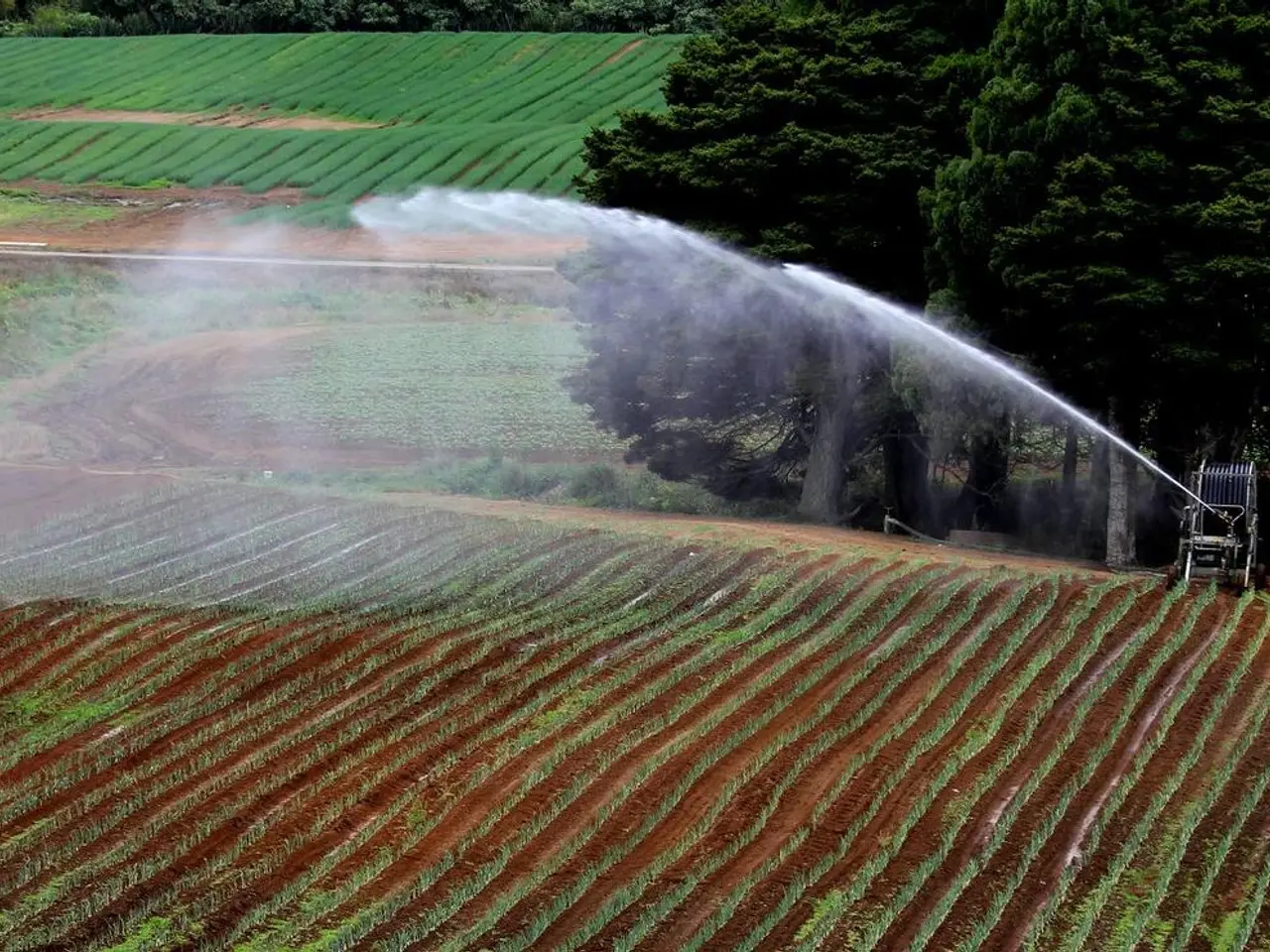Tanzania Introduces e-Kilimo, a Digital Agriculture Revolution
Tanzania has launched a digital platform, e-Kilimo, aimed at modernizing its agriculture sector. The program, funded by the European Union and jointly managed by the Tanzanian government and the United Nations, has a budget of $3 million and includes mobile-based market access, digital skills training, and the implementation of real-time data collection tools.
The majority of Tanzania's population (over 75%) resides in rural areas where farming is crucial to their livelihoods. If successful, e-Kilimo has the potential to revolutionize agricultural services by distributing best practices more effectively, improving resource allocation, and enhancing the focus of interventions.
However, the digital divide in Tanzania, characterized by limited internet and smartphone access, is a significant barrier to the widespread adoption of e-Kilimo. According to the International Telecommunication Union (ITU), only 31.9% of Tanzanians are online. To address this challenge, Tanzania has implemented several strategies.
First, the massive expansion of telecom towers has seen over 8,500 new towers constructed between 2021 and 2025, increasing the total to 9,278 towers from just 754 in 2020. This has dramatically improved mobile and internet connectivity in rural areas.
The National ICT Broadband Backbone (NICTBB) project has rolled out more than 7,500 km of fiber optic cable connecting major cities and towns, providing a backbone for better internet access and enabling lower internet prices and faster connections that extend towards rural populations.
The Universal Communications Service Access Fund (UCSAF) continues to expand internet and mobile services to underserved rural areas, including schools, health centers, and villages, fostering digital inclusion and demand for affordable technology solutions suitable for rural conditions.
Tanzania has also conducted a spectrum auction allowing companies to expand 4G and 5G coverage into underserved areas, increasing overall connectivity quality and speed, which facilitates access to platforms like e-Kilimo.
The recent fiber optic link between Tanzania and Kenya improves regional connectivity, resilience, and affordability, indirectly benefiting rural internet access through stronger infrastructure integration.
The government has also implemented policy and regulatory reforms, reducing mobile transaction fees and strengthening digital service regulations to promote digital uptake and inclusive access.
Together, these strategies create an enabling environment for e-Kilimo by improving internet availability, reducing costs, and increasing the number of users with access to smartphones and mobile internet in rural areas. This infrastructure expansion coupled with digital literacy initiatives supports farmers’ ability to adopt e-Kilimo’s digital agriculture services effectively.
The potential success of e-Kilimo in providing timely technical advice to farmers could have a significant impact on Tanzania’s agricultural sector, which contributes 23% to the national GDP and employs nearly two-thirds of the population. If successful, the e-Kilimo model could inspire other nations in the region to adopt similar digital tools to support their agricultural sectors.
The platform allows farmers, particularly those in remote areas, to connect with local extension agents for expert technical support. e-Kilimo also serves as a registry for input suppliers, enabling authorities to track the distribution of agricultural products and combat counterfeit goods. Additionally, e-Kilimo enhances the accountability of extension officers through an annual performance evaluation system.
Tanzanian officials are optimistic that e-Kilimo can bridge the gap in providing timely technical advice to farmers. Agriculture Minister Hussein Bashe officially launched e-Kilimo on July 16. If the program proves successful, it could indeed revolutionize Tanzania's agriculture sector and serve as a model for other nations in the region.
References:
[1] GSMA. (2022). Tanzania Country Profile. Retrieved from https://www.gsma.com/mobilefordevelopment/resources/tanzania-country-profile/
[2] ITU. (2021). Tanzania ICT Sector Statistics. Retrieved from https://www.itu.int/en/ITU-D/Statistics/Pages/stat/default.aspx
[3] World Bank. (2021). Tanzania - Spectrum Auction. Retrieved from https://www.worldbank.org/en/country/tanzania/projects/spectrum-auction
[4] Tanzania Communications Regulatory Authority. (2021). Cross-Border Fiber Interconnection. Retrieved from https://tca.go.tz/cross-border-fiber-interconnection/
Technology plays a crucial role in the success of Tanzania's e-Kilimo program, which aims to revolutionize agricultural services by utilizing digital platforms like real-time data collection tools, mobile-based market access, and digital skills training. To achieve widespread adoption, Tanzania has taken strategic steps to improve internet access and lower costs in rural areas through the expansion of telecom towers, fiber optic cable networks, and regulatory reforms. This infrastructure expansion and digital literacy initiatives potentially enable farmers, particularly those in remote areas, to effectively adopt e-Kilimo's digital agricultural services.




